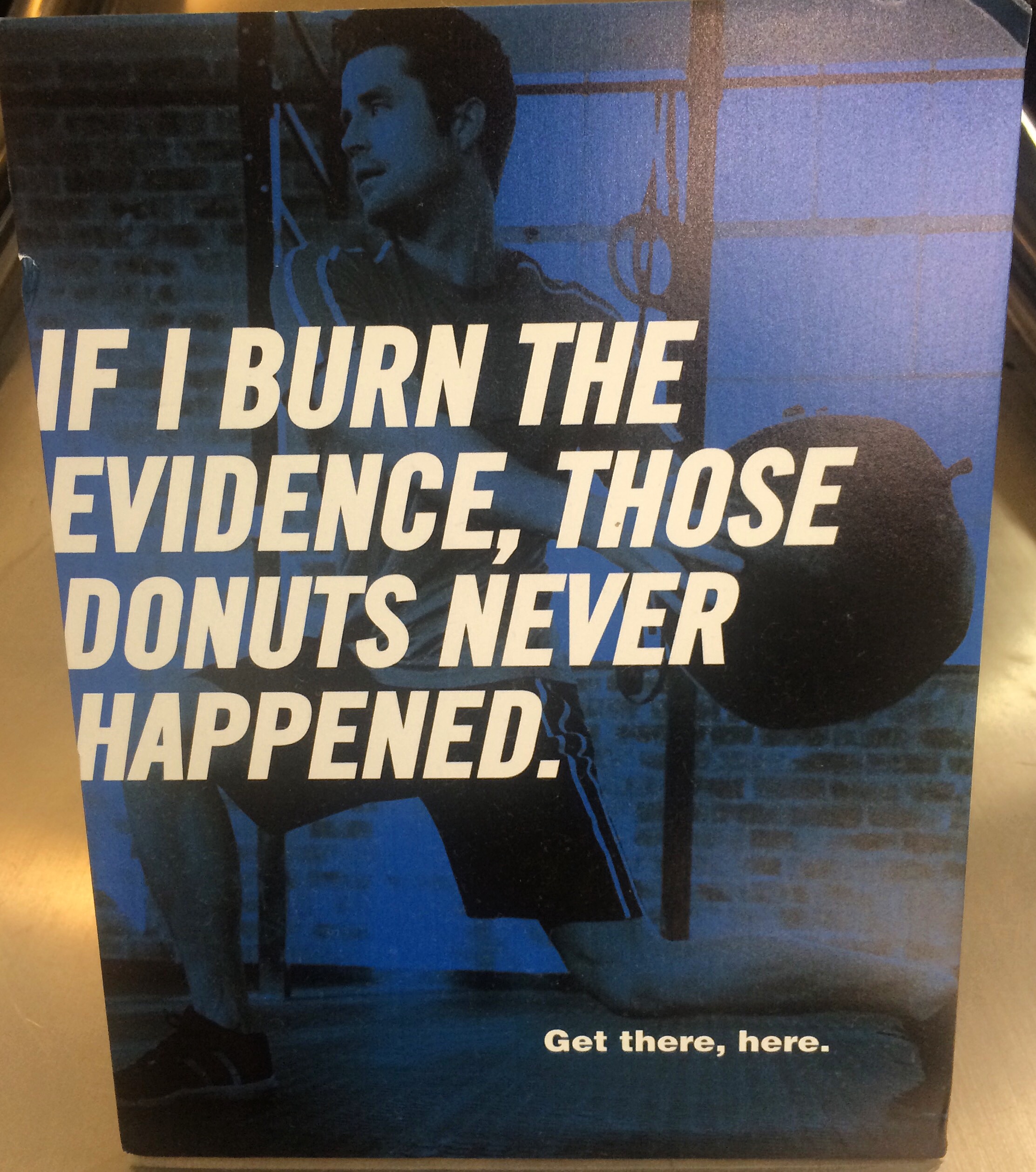I’m beginning to think more and more that it’s almost impossible for anyone in today's society to have a “normal” relationship with food – whatever that means.
For a long time I was under the impression that there was something wrong with me because occasionally, I would experience feelings of guilt related to the foods that I chose to eat. But newsflash:
We've Been Taught to Feel Guilty About Food
If you look at the messages we receive every day – it’s really no wonder that we have these thoughts from time to time, or more often than that. Most likely, these feelings of guilt didn’t just arise out of nowhere one day after eating a pint of Ben and Jerry’s ice cream. We have been taught to feel guilty about eating certain foods.
A teacher never stood in front of our classrooms and told us, "You should feel guilty if you eat this this or this." But after days and weeks and months and years of small, subtle messaging from the media, our peers, etc. many people (women AND men) find themselves frustrated with their relationship with food.
Recognizing These Feelings of Guilt
We all have weekends where a cocktail at brunch turns into some beers to watch the game which turns into ordering nachos which turns into margaritas and guac and a trip for some ice cream to top it all off (please don’t tell me that’s just me!)
Have I gone to bed on days like that and thought, “Ugh – why do I have no self-control? Why did I do that?” Yes, I have. Then, I realized those weren’t the healthiest thoughts to be having.
There are tons of articles written about removing the guilt and shame we associate with food. We recognize that phrases like “earn that cake,” “guilt-free doughnuts” and “cheat meals” promote an unhealthy relationship with food.
It’s great that we’re recognizing the need to stop feeling bad about ourselves based on what we eat. That we are more than the calories we consume. We are not our diet decisions.
Guilt Leading to More Guilt?
But I fear there’s a new problem. Now, when people recognize that they’re having these types of thoughts – they’re also thinking, “I’m bad. I shouldn’t be thinking these things. I shouldn’t feel bad about my breakfast. I shouldn’t feel guilt about my side order of fries. Why can’t I stop these thoughts and feelings? What’s wrong with me?”
It’s a tiring and seemingly endless cycle.
- Eat something delicious – be it fried, fatty, carby, loaded with sugar etc. –
- Find yourself thinking, “I shouldn’t have done that…that was bad…”
- Realize, “Why am I getting so down on myself just because I ate something that I think tastes good and I wanted to eat?”
- Think, “I can’t stop these feelings of guilt about what I eat. What’s wrong with me?”
- Repeat.
I wish I could offer you advice on how to make it stop but I don’t know that I can.
You Are Not An Anomaly
What everyone can do is remind themselves that so many people, day in and day out, have thoughts like this.
Just like eating the doughnut doesn’t make you “bad,” having feelings of shame and guilt afterwards doesn’t make you “bad” either.
Yes, the goal should be to eradicate the connection between your self-esteem and your food choices – but it won’t happen overnight and it won’t be easy. In the meantime, give yourself a pat on the back for at least being self-aware enough to acknowledge those guilty feelings.
When those guilty feelings arise, don’t stomp your foot and pout and say, “I don’t want these feelings! I just want to eat my donut!”
Accept that the society we live in today makes it almost impossible to eat carelessly and thoughtlessly.
Resolve yourself to working on it, acknowledging it, and trying to get to the root of it.
Don’t get down on yourself because you’re unable to kick that twinge of guilt when you go for your second slice of cake.
And most importantly, don’t ever think you’re the only one at the party that’s fighting with their thoughts while taking another forkful.



